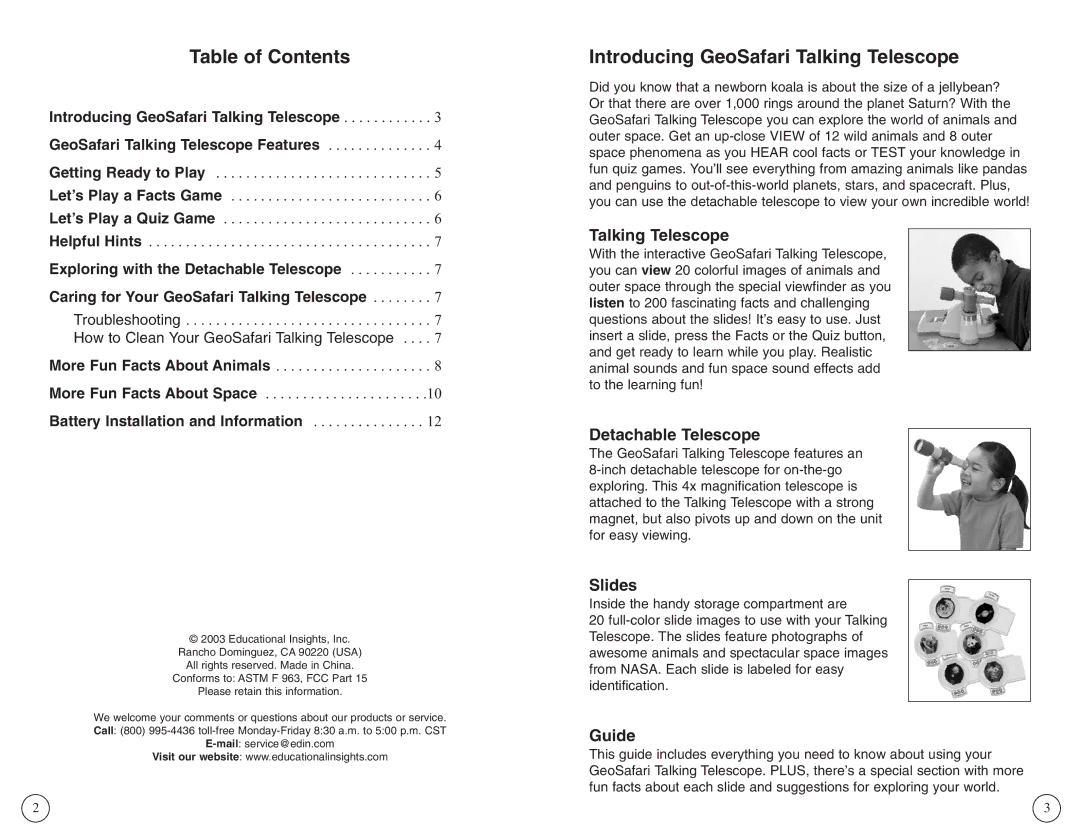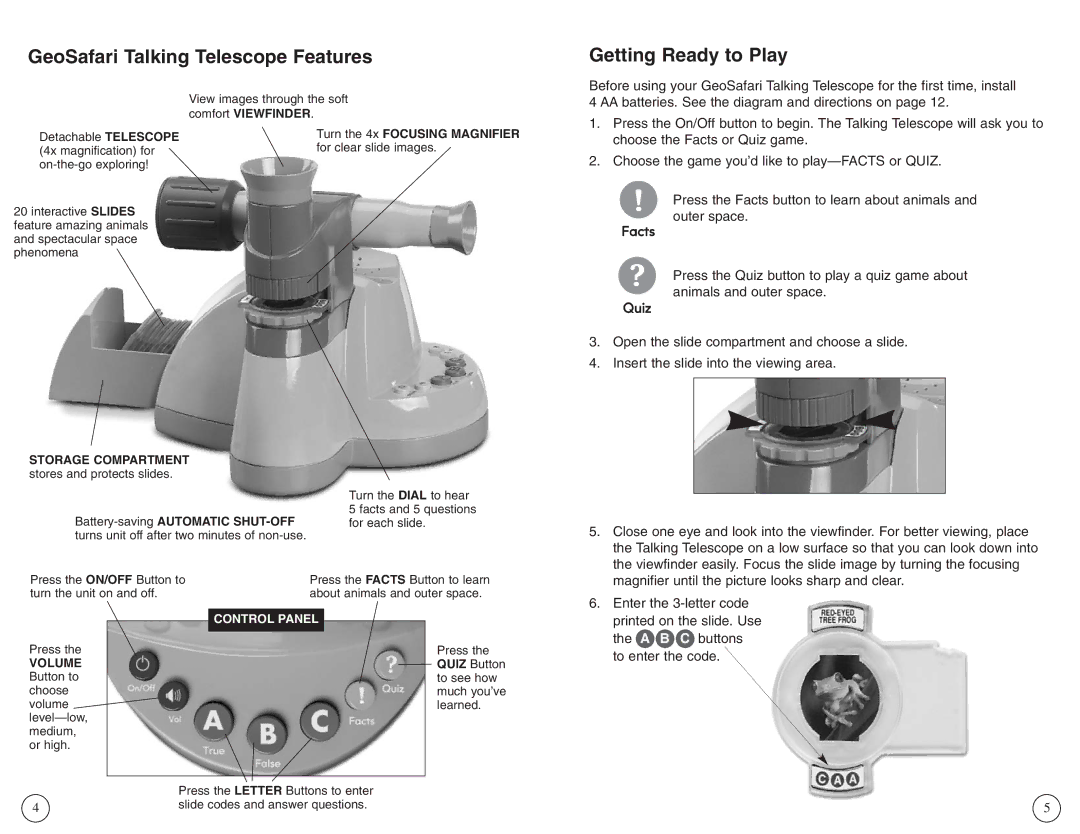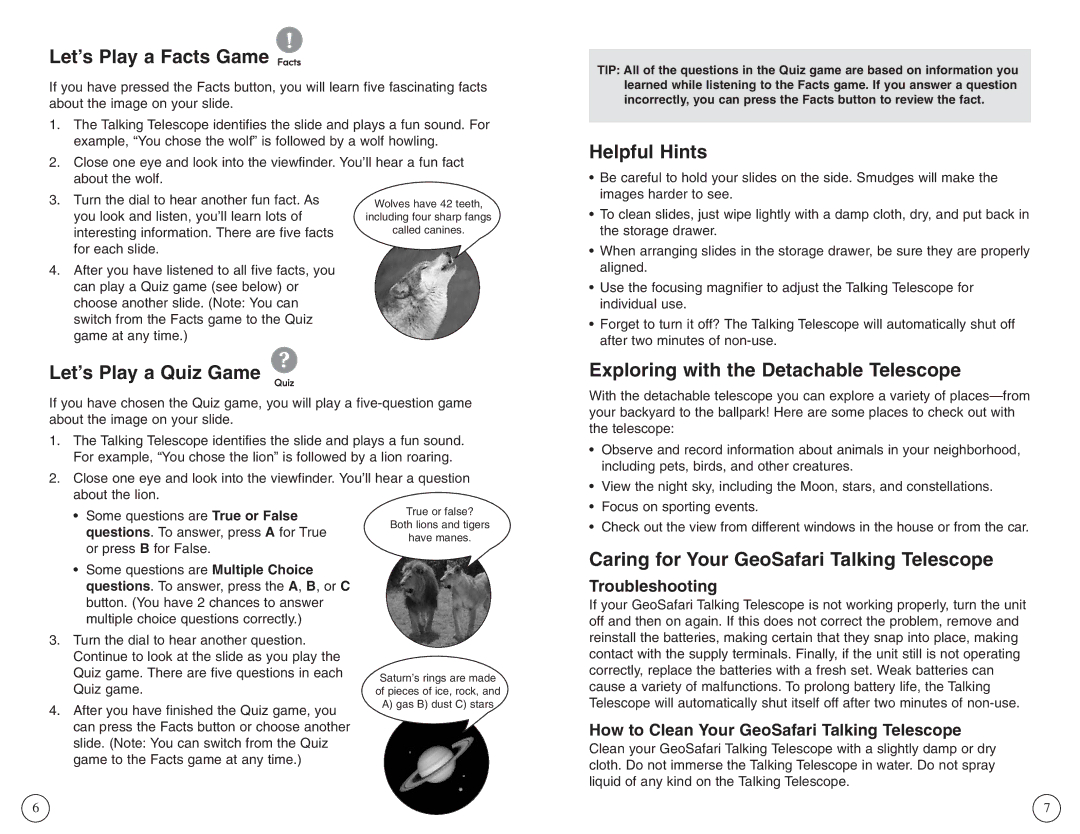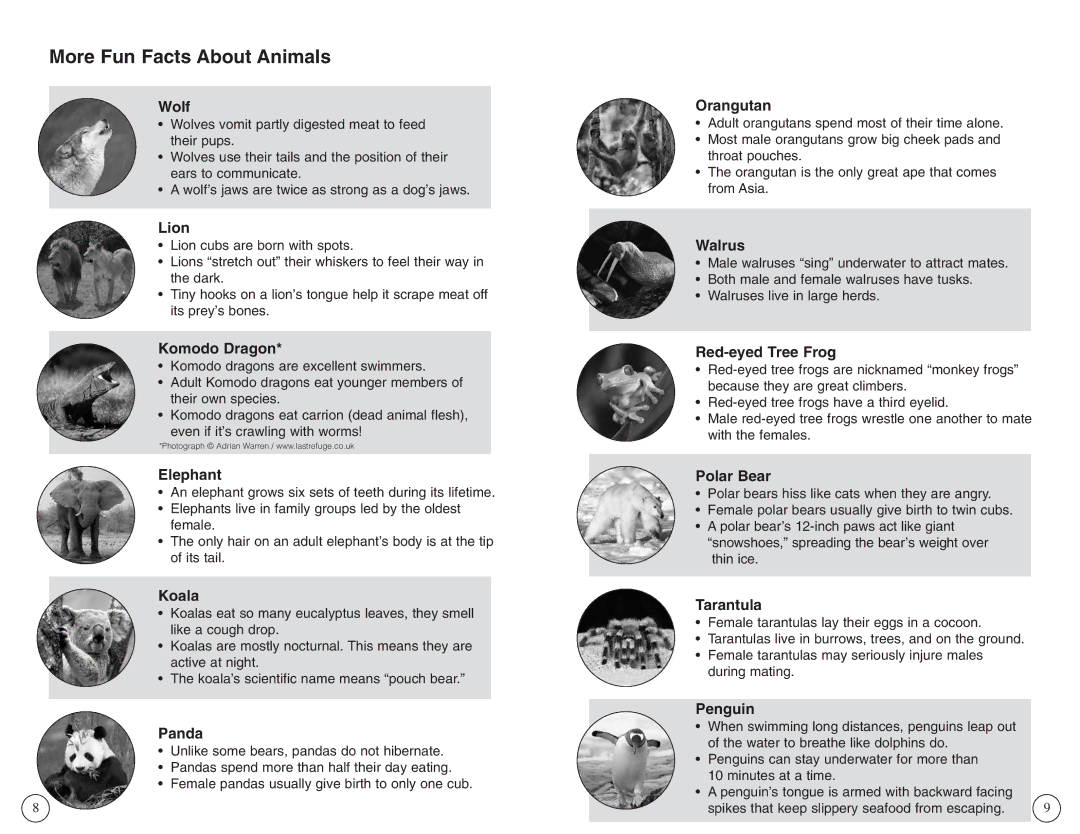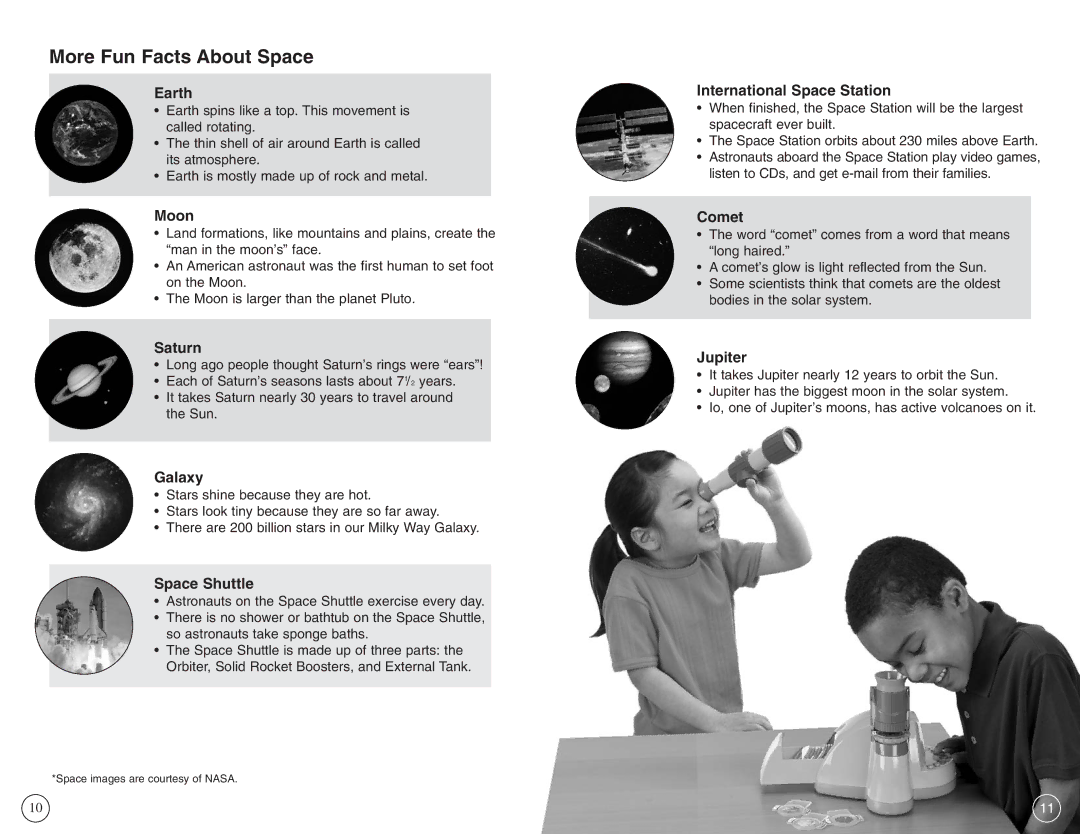
More Fun Facts About Animals
Wolf
•Wolves vomit partly digested meat to feed their pups.
•Wolves use their tails and the position of their ears to communicate.
•A wolf’s jaws are twice as strong as a dog’s jaws.
Lion
•Lion cubs are born with spots.
•Lions “stretch out” their whiskers to feel their way in the dark.
•Tiny hooks on a lion’s tongue help it scrape meat off its prey’s bones.
Komodo Dragon*
•Komodo dragons are excellent swimmers.
•Adult Komodo dragons eat younger members of their own species.
•Komodo dragons eat carrion (dead animal flesh),
even if it’s crawling with worms!
*Photograph © Adrian Warren / www.lastrefuge.co.uk
Elephant
•An elephant grows six sets of teeth during its lifetime.
•Elephants live in family groups led by the oldest female.
•The only hair on an adult elephant’s body is at the tip of its tail.
Koala
•Koalas eat so many eucalyptus leaves, they smell like a cough drop.
•Koalas are mostly nocturnal. This means they are active at night.
•The koala’s scientific name means “pouch bear.”
Panda
•Unlike some bears, pandas do not hibernate.
•Pandas spend more than half their day eating.
•Female pandas usually give birth to only one cub.
8
Orangutan
•Adult orangutans spend most of their time alone.
•Most male orangutans grow big cheek pads and throat pouches.
•The orangutan is the only great ape that comes from Asia.
Walrus
•Male walruses “sing” underwater to attract mates.
•Both male and female walruses have tusks.
•Walruses live in large herds.
Red-eyed Tree Frog
•
•
•Male
Polar Bear
•Polar bears hiss like cats when they are angry.
•Female polar bears usually give birth to twin cubs.
•A polar bear’s
Tarantula
•Female tarantulas lay their eggs in a cocoon.
•Tarantulas live in burrows, trees, and on the ground.
•Female tarantulas may seriously injure males during mating.
Penguin
•When swimming long distances, penguins leap out of the water to breathe like dolphins do.
•Penguins can stay underwater for more than 10 minutes at a time.
•A penguin’s tongue is armed with backward facing
spikes that keep slippery seafood from escaping. | 9 |

